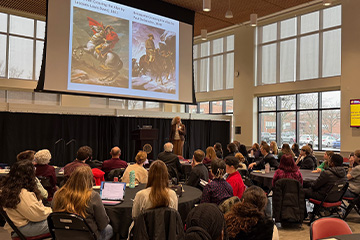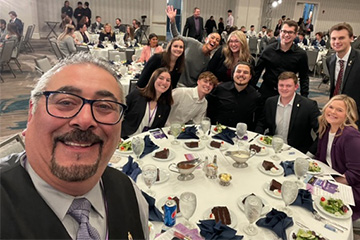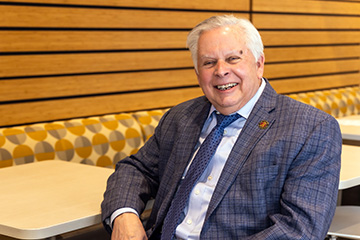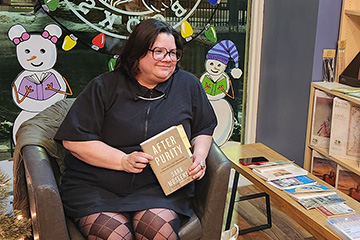New public and applied liberal arts program features entrepreneurship track
Initiative combines traditional humanities education with practical career preparation
Central Michigan University has introduced a new public and applied liberal arts program that combines traditional humanities education with practical career preparation, including an entrepreneurship track designed to bridge the gap between liberal arts and business.
The program, developed by the College of Liberal Arts and Social Sciences, draws inspiration from a successful model at the University of Arizona, where a similar initiative has become the largest humanities major in the college and one of the largest majors on campus.
Program combines essential skills with applied fields
"The idea is that you take all the powerful stuff, the essential skills like critical thinking, communication, deep cultural understanding and combine them with an applied field," said Christi Brookes, assistant dean of the College of Liberal Arts and Social Sciences and a faculty member in the department of history, world languages and cultures.
The entrepreneurship track specifically targets students who want to apply liberal arts skills in business settings. Gregory Smith, a faculty member in the department of history, world languages and cultures, involved in the program, emphasized the collaborative nature of the initiative.
"We're building closer ties between colleges and getting students into and faculty out of our own buildings to see the way people do things in other places," Smith said. "We've all been talking about this for a long time, but we think this is a chance where it's actually going to happen this time."
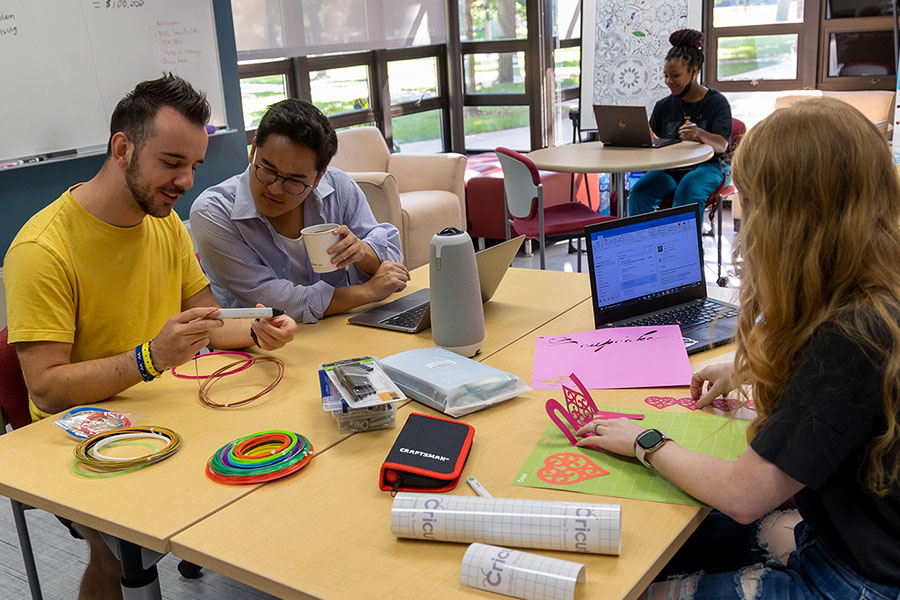
Student entrepreneurs work on their venture ideas in the Isabella Bank Institute for Entrepreneurship's Idea Dean located in Grawn 166.
Cross-campus partnerships strengthen program
The program is establishing partnerships across campus, including a closer collaboration with the College of Business Administration's New Venture Competition. Julie Messing, director of the Isabella Bank Institute for Entrepreneurship, serves on the program's committee and is helping coordinate opportunities for liberal arts students to participate in entrepreneurial projects.
"With the College of Business already, there's such a great curricular and co-curricular experience with the new venture competition and all the resources that CBA brings to bear for all of their students," Brookes said. "This program will help a humanities or social sciences, liberal arts student tap into those."
The entrepreneurship track is planning to include participation in the New Venture Competition as a requirement for initial classes, with opportunities for students to join existing teams or develop their own projects.
Program expansion includes public health partnership
Beyond entrepreneurship, the program offers partnerships with four other CMU disciplines, including Public Health, Fashion Innovation and Human-Centered Design, Resilient Communities, and Game Design Thinking, reflecting current national and global priorities in that field. Brookes expressed enthusiasm about the program's potential. "We think we have a formula that works for this place and for our students," she said.
National recognition for innovative approach
The program has begun attracting attention within higher education circles as a model for how liberal arts programs can evolve to meet changing career demands while maintaining their core educational values.
"There is some recognition that this is the way that the humanities and colleges of liberal arts need to head," Brookes said. The program allows students to design individualized paths that combine their liberal arts foundation with practical applications, breaking down traditional silos between academic disciplines. "Students will be able to design a path that makes sense for something that they in a way that uses their skills to the most," Brookes said.
The College of Liberal Arts and Social Sciences plans to continue expanding the program and welcoming additional students as it grows, with faculty expressing excitement about the cross-disciplinary collaboration opportunities it creates.
